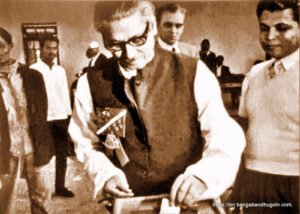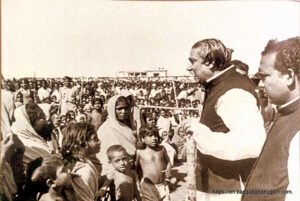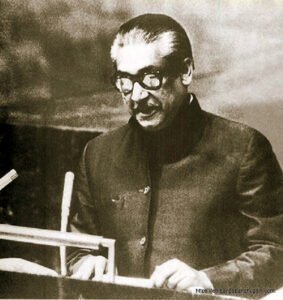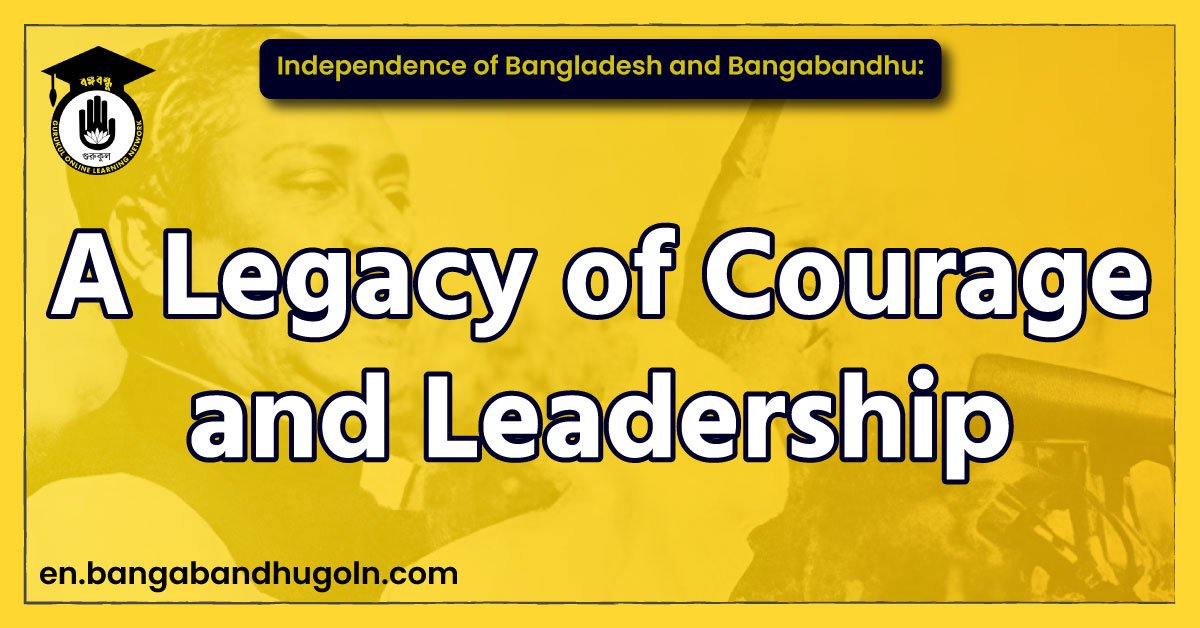The independence of Bangladesh, a momentous event in South Asian history, is a tale of immense sacrifice, unwavering determination, and visionary leadership. Central to this epochal journey is the figure of Bangabandhu Sheikh Mujibur Rahman, whose indomitable spirit and strategic foresight led the Bengali nation to freedom from Pakistani rule. This article delves into the significance of Bangladesh’s independence and the pivotal role played by Bangabandhu Sheikh Mujibur Rahman.
Table of Contents
Independence of Bangladesh and Bangabandhu: A Legacy of Courage and Leadership
Prelude to Independence
The roots of Bangladesh’s struggle for independence can be traced back to the partition of India in 1947, which created Pakistan as a nation divided into two geographically and culturally distinct regions: East Pakistan (now Bangladesh) and West Pakistan. Despite East Pakistan having a larger population, political power and resources were disproportionately concentrated in West Pakistan. This disparity led to growing resentment and a burgeoning sense of Bengali nationalism.
The discontent reached a boiling point when, in 1970, the Awami League, led by Sheikh Mujibur Rahman, won a landslide victory in the general elections of Pakistan. Despite securing the majority, the central government in West Pakistan, led by General Yahya Khan, refused to transfer power to the Awami League. This blatant denial of democratic rights sparked widespread agitation and unrest in East Pakistan.

Bangabandhu’s Leadership
Sheikh Mujibur Rahman, affectionately known as Bangabandhu (Friend of Bengal), emerged as the foremost leader of the Bengali nationalist movement. His charisma, eloquence, and deep connection with the masses galvanized the people of East Pakistan. On March 7, 1971, in a historic speech at the Racecourse Ground (now Suhrawardy Udyan) in Dhaka, Bangabandhu delivered a powerful call to action, urging Bengalis to prepare for a struggle for independence.
His words, “The struggle this time is for our freedom. The struggle this time is for our independence,” resonated deeply with millions and became a rallying cry for the liberation movement. Despite knowing the risks involved, Bangabandhu’s steadfast commitment to the cause of Bengali self-determination inspired an entire nation to rise against oppression.
The War of Independence
The night of March 25, 1971, marked a brutal turning point when the Pakistani military launched Operation Searchlight, a violent crackdown on the Bengali population. This act of aggression led to widespread atrocities, with countless civilians being killed, women violated, and homes destroyed. The genocidal campaign aimed to suppress the independence movement, but it only strengthened the resolve of the Bengali people.
In response, the Mukti Bahini (Liberation Army), composed of Bengali military personnel and civilian volunteers, launched a full-scale guerrilla war against the Pakistani forces. Bangabandhu Sheikh Mujibur Rahman, despite being arrested and taken to West Pakistan, continued to symbolize the spirit of resistance.

Victory and Legacy
After nine months of intense struggle, on December 16, 1971, the Pakistani military surrendered to the joint forces of the Mukti Bahini and the Indian Army, leading to the creation of the independent state of Bangladesh. Bangabandhu Sheikh Mujibur Rahman was released from imprisonment and returned to a hero’s welcome in Dhaka on January 10, 1972.
As the founding father of Bangladesh, Bangabandhu’s vision was to build a nation based on principles of democracy, secularism, socialism, and nationalism. His leadership during the critical years of the independence movement and his efforts to lay the foundation of a new nation earned him a revered place in the hearts of the Bangladeshi people.

The independence of Bangladesh and the leadership of Bangabandhu Sheikh Mujibur Rahman are indelibly etched in the nation’s history. His unwavering dedication to the cause of Bengali nationalism and his ability to inspire and unite the people were instrumental in achieving freedom from Pakistani rule. Today, as Bangladesh continues to grow and develop, the legacy of Bangabandhu serves as a guiding light, reminding the nation of the values of courage, resilience, and the enduring spirit of independence.
Read more:
